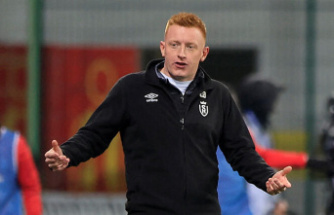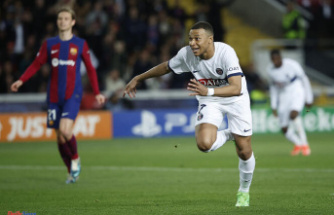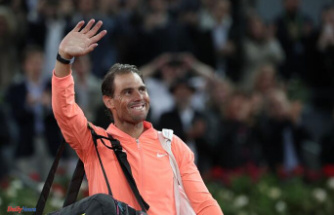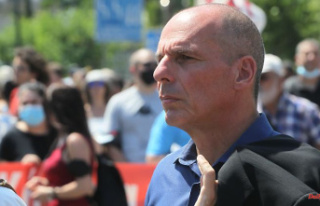The alpine ski winter begins - with hopeful Germans and gloomy thoughts of climate change and the energy crisis. Apparently, the FIS, the International Ski and Snowboard Federation, has given relatively little thought to contributions to sustainability.
Linus Straßer just wants to do "my job". His job is ski racing, "that's how I earn my living". But in times of climate change and the energy crisis, even the best German slalom skier and only World Cup winner last winter has his thoughts. If politicians decide to restrict, in his opinion it would be “a wrong sign to start with it in sport”.
Before the start of the World Cup at the weekend in Sölden with a giant slalom for women and men, Straßer thinks not least of the fundamental effects of austerity measures, whatever they may turn out to be in the end. He sees himself in the role of a role model for children, he wants to "get them into sports," he says, because sport is "extremely important for children, but also for society".
Alexander Schmid, like Straßer, Olympic silver medalist with the team and as the best giant slalom skier of the DSV, the greatest hope for the race on Sunday (10 a.m. and 1 p.m./BR and Eurosport), has gloomy thoughts. "In any case," he worries, "it would be bad for skiing," for example, "if you have to close the lifts." Even that, he fears, would initially affect the youngsters, despite all the understanding for the measures.
Apparently, the FIS, the International Ski and Snowboard Federation, has given little thought to contributions to sustainability: races on glaciers at the wrong time of year, overcrowded race calendars, two trips to the USA, energy-intensive snowmaking on race slopes. As an active player, his hands are tied, says Schmid, he would at least send a small signal: "No more night slaloms". Save floodlights.
As far as their job is concerned, the Germans are somewhat optimistic about the season, which culminates in the World Cup (6th to 19th February) in Courchevel and Meribel in France. That doesn't apply to Strasser this weekend, who "definitely doesn't drive down the Rettenbach glacier for fun", as head coach Christian Schwaiger emphasizes. But who has a high starting number for the time being.
Schmid, on the other hand, sees himself well positioned after a preparation that was praised by all. Last season was his best and he's finally going into this one without any physical problems. "For me personally," he says, the early start of the season came "at exactly the right time". The race is also the first chance to reach the DSV benchmark for a World Championship nomination (1x Top 8 or 2x Top 15 in the World Cup).
In addition to Schmid and Straßer, four other Germans will start on Sunday, including Stefan Luitz after his back operation. He will initially fight for qualification for the second race of the top 30 - like the two women who compete on Saturday (10 a.m. and 1.05 p.m. / BR and Eurosport). It would be a success for Marlene Schmotz and Jessica Hilzinger if they could, says the new head coach Andreas Puelacher.
He comes from the Austrian association, downhill skier Kira Weidle and slalom ace Lena Dürr are his only top skiers in a very small team. But the experienced coach knows "what I got myself into". And he emphasizes: At the end of this winter "we'll be in a better position than we are now, I'm firmly convinced of that".












